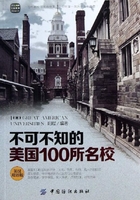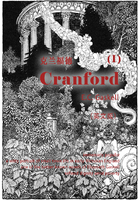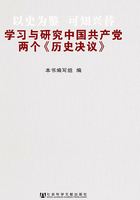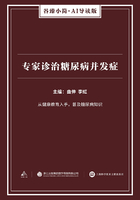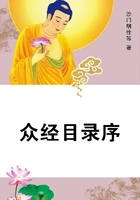To my lifelong friend Carmen Balcells
What would become of us without the help of what doesn't exist?
Paul Valéry, "Petite Lettre sur les mythes"
THE WAY TO
PARADISE
APRIL 1844
She opened her eyes at four in the morning and thought, Today you begin to change the world, Florita. Undaunted by the prospect of setting in motion the machinery that in a matter of years would transform humanity and eliminate injustice, she felt calm, strong enough to face the obstacles ahead of her. It was the same way she had felt on that afternoon in Saint-Germain ten years ago, at her first meeting of Saint-Simonians, when she listened to Prosper Enfantin describe the messianic couple who would save the world and vowed to herself, You'll be that Woman-Messiah. Poor Saint-Simonians, with their elaborate hierarchies, their fanatical love of science, their belief that progress could be made simply by putting industrialists in government and running society like a business! You had left them far behind, Andalusa.
Unhurriedly, she got up, washed, and dressed. The night before, after the painter Jules Laure visited to wish her luck on her tour, she had finished packing her bags and, with the help of Marie-Madeleine, the maid, and the water-seller No?l Taphanel, moved them to the foot of the stairs. She herself had carried the freshly printed copies of The Workers' Union, stopping every few steps to catch her breath because the sack was so heavy. When the carriage arrived at the house on the rue du Bac to take her to the wharf, Flora had been up for hours.
It was still the dead of night. The gas lamps on the corners had been extinguished, and the coachman, buried in a cloak so that only his eyes were visible, urged the horses on with a whistle of his whip. As she listened to the tolling of the bells of Saint-Sulpice, the streets, dark and lonely, seemed ghostly to her. But on the banks of the Seine, the wharf swarmed with passengers, sailors, and porters preparing for departure. She heard orders and shouts. When the ship set sail, trailing a foamy wake in the brown waters of the river, the sun was shining in a spring sky and Flora sat drinking hot tea in her cabin. Wasting no time, she noted the date in her diary: April 12, 1844. And at once she began to study her travel companions. You would reach Auxerre by dusk, so you had twelve hours in this floating specimen case to expand your knowledge of rich and poor, Florita.
Few of the travelers were bourgeois. Many were sailors off the boats that carried the agricultural produce of Joigny and Auxerre to Paris, and were now on their way home. They were gathered around their master, a hairy, gruff, redheaded man in his fifties, with whom Flora had a friendly exchange. Sitting on deck surrounded by his men, at nine in the morning the master gave each man as much bread as he could eat, seven or eight radishes, a pinch of salt, two hard-boiled eggs, and, in a tin cup passed from hand to hand, a swallow of wine. These freight sailors earned a franc and a half for a day of labor; over the long winters, they barely scraped by. Their work in the open air was hard when the weather was rainy. But in the relationship of the men with their master, Flora saw none of the servility of the English sailors, who hardly dared meet the eyes of their superiors. At three in the afternoon, the master served them their last meal of the day: slices of ham, cheese, and bread, which they ate in silence, sitting in a circle.
In the port at Auxerre, it took an infernally long time for the baggage to be unloaded. The locksmith Pierre Moreau had made a reservation for her at an old inn in the center of town, and she arrived there early in the morning. Day was dawning as she unpacked. She got into bed knowing she wouldn't sleep a wink. But for the first time in a long while, during the few hours that she lay watching the light grow through the cretonne curtains, she didn't daydream about her mission, the suffering of humanity, or the workers she would recruit for the Workers' Union. She thought instead about the house where she was born, in Vaugirard, on the outskirts of Paris, a neighborhood of the bourgeoisie whom she now detested. Were you remembering the house itself—spacious, comfortable, with its manicured gardens and busy maids—or the descriptions of it your mother gave when you were no longer rich but poor, the flattering memories in which the unhappy woman took refuge from the leaks, disarray, clutter, and ugliness of those two little rooms on the rue du Fouarre? You and your mother were forced to move there after the authorities seized the Vaugirard house, claiming that your parents' marriage, performed in Bilbao by a French expatriate priest, wasn't valid, and that Mariano Tristán, Spanish citizen from Peru, belonged to a country with which France was at war.
Most likely, Florita, your memory preserved only what your mother had told you of those early years. You were too little to remember the gardeners, the maids, the furniture upholstered in silk and velvet, the heavy draperies, the silver, gold, crystal, and painted china that adorned the salon and the dining room. Madame Tristán fled into the splendid past of Vaugirard so as not to see the poverty and misery of the foul-smelling place Maubert, crowded with beggars, vagabonds, and lowlifes, or the rue du Fouarre, full of taverns, where you spent several years of your childhood—those years you remembered well. Carrying basins of water up and down, carrying sacks of rubbish up and down. Afraid of meeting, on the worn, creaky steps of the steep little staircase, that old drunkard with the purple face and swollen nose, Uncle Giuseppe, a man with wandering hands who sullied you with his gaze and sometimes pinched you. Years of scarcity, fear, hunger, sadness, especially when your mother fell into stunned silence, unable to accept such misfortune after having lived like a queen with her husband—her legitimate husband before God, no matter what anyone said—Don Mariano Tristán y Moscoso, a colonel of the Armies of the King of Spain who died prematurely of apoplexy on June 4, 1807, when you were barely four years and two months old.
It was just as unlikely that you would remember your father. The full face, the heavy eyebrows, the curly mustache, the faintly rosy skin, the ringed fingers, the long gray sideburns of Mariano Tristán that came to your memory weren't those of the flesh-and-blood father who carried you in his arms to watch the butterflies flutter among the flowers of the gardens of Vaugirard, and sometimes offered to give you your bottle; the man who spent hours in his study reading chronicles of French travelers in Peru; the Don Mariano who was visited by the young Simón Bolívar, future Liberator of Venezuela, Colombia, Ecuador, Bolivia, and Peru. It was the Mariano Tristán of the portrait your mother kept on her night table in the tiny apartment on the rue du Fouarre; the Don Mariano of the oil paintings hanging in the Tristán family house on Calle Santo Domingo in Arequipa, paintings that you spent hours studying until you were convinced that that handsome, elegant, prosperous-looking gentleman was your father.
The first morning noises began to rise from the streets of Auxerre, and Flora knew sleep had fled for good. Her appointments began at nine. She had arranged several, thanks to Moreau, the locksmith, and the good Agricol Perdiguier's letters of introduction, addressed to his friends at the workers' mutual aid societies of the region. But you had time. A few moments longer in bed would give you strength to rise to the circumstances, Andalusa.
What if Colonel Mariano Tristán had lived many years more? You'd never have known poverty, Florita. Thanks to a good dowry, you'd be married to a bourgeois, and maybe you'd be living in a beautiful Vaugirard mansion, surrounded by gardens. You'd have no idea what it was like to go to bed with your insides twisted by hunger; you wouldn't know the meaning of such concepts as discrimination and exploitation. Injustice would be an abstract term. But perhaps your parents would have given you an education—schooling, teachers, a tutor. Though they might not have: a girl from a good family was educated only in order to win a husband and learn to be a good mother and housewife. You'd have no knowledge of any of the things necessity had forced you to learn. True, you wouldn't make the spelling mistakes that had embarrassed you all your life, and doubtless you'd have read more books. You would spend the years occupying yourself with your wardrobe, caring for your hands, your eyes, your hair, your figure, living a worldly life of soirees, dances, plays, teas, excursions, flirtations. You'd be a lovely parasite burrowed deep into your good marriage. Never would you seek to discover what the world was like beyond your sheltered existence in the shadow of your father, your mother, your husband, your children. A machine for giving birth, a contented slave, you'd go to church on Sundays, to confession on the first Friday of every month, and now, at forty-one, you'd be a plump matron with an irresistible passion for chocolate and novenas. You would never have traveled to Peru, or seen England, or discovered pleasure in the arms of Olympia, or written the books that you've written despite your poor spelling. And, of course, you would never have become conscious of the slavery of women, nor would it have occurred to you that in order for women to be liberated it was necessary for them to unite with other exploited peoples and wage a peaceful revolution—as crucial for the future of humanity as the emergence of Christianity 1,844 years ago. "It was better you died, mon cher papa," she said, laughing, as she leaped out of bed. She wasn't tired. For twenty-four hours she had felt no pains in her back or womb, nor had she noticed the cold presence in her chest. You were in great spirits, Florita.
The first meeting, at nine in the morning, took place in a workshop. The locksmith, Moreau, who was supposed to accompany her, had had to leave Auxerre urgently because of a death in the family. You were on your own, Andalusa. As planned, the gathering drew some thirty members of one of the associations into which the mutual aid societies of Auxerre had split, a group with the lovely name of Duty to Be Free. These members, almost all shoemakers, greeted her with wary, uncomfortable glances, one or two mocking, when they realized their visitor was a woman. She had become accustomed to receptions like this ever since, months ago, she had begun to present her ideas about the Workers' Union to small groups in Paris and Bordeaux. When she spoke she kept her voice steady, feigning more confidence than she possessed. The distrust of her listeners gradually evaporated as she explained how, by uniting, workers could get what they yearned for—the right to work, education, health, decent living conditions—while so long as they were scattered they would always be mistreated by the rich and those in power. All murmured their assent when, in support of her ideas, she made reference to What Is Property?, Pierre-Joseph Proudhon's controversial book, which had prompted so much talk in Paris since its appearance four years before, with its emphatic assertion that property is theft. Two of those present, who seemed to be followers of Charles Fourier, had come ready to attack her, with arguments Flora had heard before from Agricol Perdiguier. If workers had to subtract a few francs from their miserable salaries to contribute to the Workers' Union, how would they feed their children? She responded patiently to all their objections. At least as far as contributions were concerned, she thought they allowed themselves to be convinced. But their resistance was stubborn on the question of marriage.
"You attack the family and want it to disappear. That isn't Christian, madame."
"Indeed it is," she replied, on the verge of losing her temper. But she softened her voice. "What isn't Christian is when a man buys himself a woman, turns her into a child-bearing machine and beast of burden, and on top of it all beats her senseless each time he has too much to drink—all in the name of the sanctity of the family."
When she realized that they were staring at her wide-eyed, in dismay, she suggested that they change the subject and instead imagine together the advantages that the Workers' Union would bring peasants, craftsmen, and workers like themselves. For example, the Workers' Palaces—modern, clean, airy buildings where their children would be educated and their families treated by good doctors and nurses when they were in need of care or had been injured at work. When their strength failed, or they were too old for the workshop, they would retire to these welcoming homes to rest. The dull and tired eyes gazing at her grew livelier, began to shine. Wasn't it worthwhile to sacrifice a small part of their wages in exchange for such gains? Some listeners nodded.
How ignorant, how foolish, how egotistical so many of them were. She realized this when, after answering their questions, she began to interrogate them. They knew nothing, they were completely lacking in curiosity, and they were content with their animal lives. It was an uphill battle to get them to devote any of their time or energy to fighting for their sisters and brothers. Exploitation and poverty had made them stupid. Sometimes it was tempting to believe that Saint-Simon was right, Florita: the people were incapable of saving themselves; only an elite could manage it. They had even been infected with bourgeois prejudices: it was hard for them to accept that it should be a woman—a woman!—who was urging them to take action. The cleverest and most outspoken of them were unbearably arrogant—they put on aristocratic airs—and Flora had to make an effort not to explode. She had sworn to herself that for the year her tour of France lasted, she would give no cause, not ever, to deserve the nickname Madame-la-Colère, which she was sometimes called by Jules Laure and other friends because of her outbursts. In the end, the thirty shoemakers promised to join the Workers' Union and tell the carpenters, locksmiths, and stonecutters in the Duty to Be Free society what they had heard that morning.
As she was returning to the inn along the winding cobbled streets of Auxerre, she saw in a little square where four poplars were growing, their leaves very new and white, a group of girls playing, making and unmaking patterns as they ran about. She stopped to watch them. They were playing the game called Paradise, which, according to your mother, you used to play in the gardens of Vaugirard with other little girls from the neighborhood, under the smiling gaze of Mariano Tristán. Did you remember, Florita? "Is this the way to Paradise?" "No, miss, try the next corner." And as the girl ran from corner to corner seeking the elusive Paradise, the others amused themselves by changing places behind her back. She remembered the surprise she felt one day in Arequipa in 1833, near the church of La Merced, when all of a sudden she came upon a group of boys and girls running around the courtyard of a big house. "Is this the way to Paradise?" "Try the next corner, sir." The game you thought was French turned out to be Peruvian too. And why not? Didn't everyone dream of reaching Paradise? She had taught the game to her two children, Aline and Ernest.
For each town and city, she had set herself a strict schedule: meetings with workers, the newspapers, the most influential landowners and industrialists, and, of course, church authorities. She would explain to her bourgeois listeners that, contrary to what was said, her project heralded not civil war but rather a bloodless revolution, Christian at its roots, inspired by love and brotherhood. And that the Workers' Union, in bringing liberty and justice to the poor and to women, would in fact prevent violent outbursts, inevitable in France if things continued as they had gone on so far. How long would a handful of the privileged keep growing fat at the expense of the poor? How long would slavery, abolished for men, persist for women? She knew how to be persuasive; her arguments would convince many bourgeois and priests.
But in Auxerre she couldn't visit a newspaper, because there weren't any. A city of twelve thousand, and no newspaper. The crass ignorance of the local bourgeoisie was remarkable.
At the cathedral, she had a conversation that ended in a fight with the parish priest, Father Fortin, a fat, balding little man with fearful eyes, foul breath, and a greasy cassock, whose narrowmindedness managed to infuriate her. ("Temper, Florita.")
She went to see Father Fortin at his house, next door to the cathedral, and noted how big it was and how well furnished. The maid, an old woman in a cap and apron, limped ahead of her to the priest's office. He kept her waiting for a quarter of an hour before receiving her. When he appeared, his dumpy body, shifty eyes, and slovenliness made her dislike him instantly. Father Fortin listened to her in silence. Trying to be pleasant, Flora explained her reasons for coming to Auxerre. Her Workers' Union project meant the alliance of the entire working class, first in France, then in Europe, and finally all over the world, for the purpose of forging a truly Christian society, infused with brotherly love. He listened with an incredulity that turned gradually into suspicion and finally horror when Flora said that once the Workers' Union was established, the delegates would go to the authorities—including King Louis Philippe himself—to present their demands for social reform, beginning with absolute equal rights for men and women.
"But that would be revolution," the priest sputtered, letting fall a fine rain of saliva.
"On the contrary," Flora corrected him. "The Workers' Union is conceived to avoid revolution, so that justice may triumph without the least bit of bloodshed."
Otherwise, there might be more deaths than in 1789. Didn't the priest, from hearing confession, know the sufferings of the poor? Didn't he realize that hundreds of thousands, millions of human beings, worked fifteen, eighteen hours a day, like animals, yet didn't earn enough even to feed their children? Wasn't he, who saw women and spoke with them every day at church, aware of how they were humiliated, mistreated, exploited, by their parents, their husbands, their children? Their fate was even worse than that of the workers. If nothing changed, there would be an explosion of hatred in society. The Workers' Union was created to prevent this. The Catholic Church should help it in its crusade. Didn't Catholics want peace, compassion, social harmony? In this the Church and the Workers' Union thoroughly concurred.
"I may not be a Catholic, but Christian philosophy and morality guide my actions, Father," she assured him.
When he heard her say that she wasn't Catholic, although she was Christian, Father Fortin's round face grew pale. Giving a little jump, he wanted to know whether this meant the lady was Protestant. Flora explained that she wasn't: she believed in Jesus but not in the Church, because in her judgment Catholicism's hierarchical structure suppressed human freedom. And its dogmatic beliefs stifled intellectual life, free will, and scientific endeavors. Also, its teaching that chastity was a sign of spiritual purity strengthened the prejudices that had made women little more than slaves.
The priest passed from pallor to near apoplexy. He blinked rapidly, flustered and alarmed. Flora fell silent when she saw him brace himself against his worktable, shuddering. He seemed ready to collapse.
"Do you realize what you are saying, madame?" he stammered. "For these ideas you've come to ask the help of the Church?"
Yes, precisely. Didn't the Catholic Church claim to be the church of the poor? Wasn't it opposed to injustice, the spirit of lucre, the exploitation of human beings, greed? If so, then the Church had the obligation to support a project that proposed to bring justice to this world in the name of love and brotherhood.
Flora tried a good while longer to make herself understood, but it was like talking to a wall, or a mule. Impossible. The priest wouldn't even argue with her. He gazed at her with fear and repugnance, not bothering to disguise his impatience. At last he muttered that he couldn't promise to help her, since that would depend on the bishop of the diocese. She should go to the bishop and explain her proposal—although, he warned her, it was unlikely that any bishop would sponsor a social initiative that was openly anti-Catholic. And if the bishop prohibited it, no churchgoer would help her, since the Catholic flock obeyed its shepherds.
And, thought Flora as she listened to him, according to the Saint-Simonians, the principle of authority must be reinforced in order for society to function properly. The same respect for authority that makes Catholics into automatons, like this wretch.
She tried to take her leave of Father Fortin in a friendly manner, offering him a copy of The Workers' Union.
"Read it at least, Father. You'll see that my project is full of Christian sentiments."
"I won't read it," said Father Fortin, shaking his head vigorously without taking the book. "It's clear from what you've told me that this book is unclean. That it was inspired, perhaps without your knowing it, by Beelzebub himself."
As she returned the little book to her pocket, Flora began to laugh. "You're one of those priests who would build bonfires in every square again to burn all the free and intelligent people in the world, Father," she said as she left.
In her room at the inn, after some hot soup, she took stock of her day in Auxerre. She wasn't discouraged. Chin up, Florita. Things hadn't gone well, but they hadn't gone badly either. Putting yourself at the service of humanity was hard work, Andalusa.

